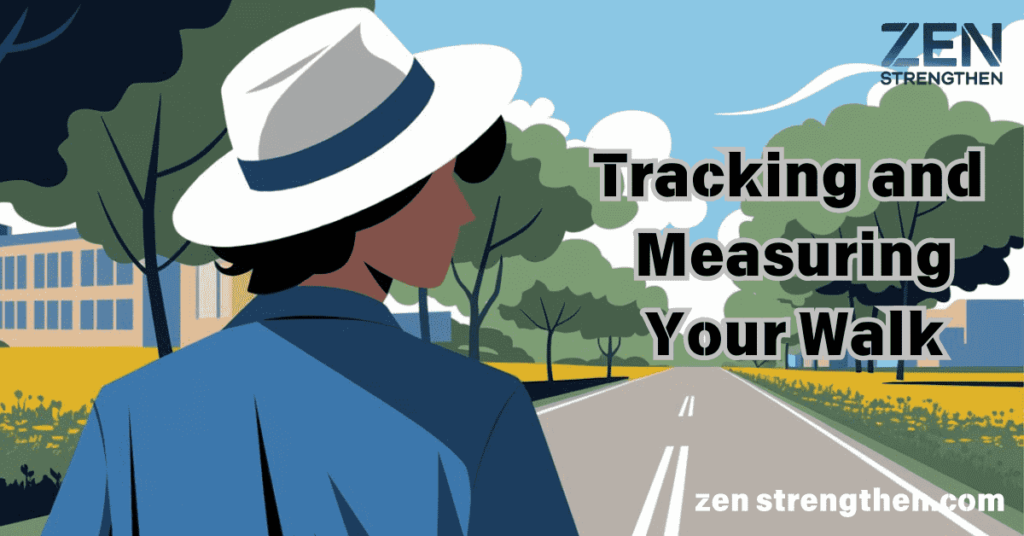Walking is one of the simplest forms of exercise, offering numerous health benefits while being easy to incorporate into a daily routine. But how long does it take to walk 2 miles? And more importantly.
How can you improve your walking speed and make your walks more enjoyable? In this comprehensive guide, we’ll explore the factors that influence walking time, share tips to enhance your pace, and discuss how to stay motivated on your walking journey.
Understanding the Duration of a 2-Mile Walk
Average Time to Walk 2 Miles
The average time it takes to walk 2 miles varies depending on several factors, including walking speed, terrain, and individual fitness levels. Typically, a 2-mile walk can be completed in:
- 30 minutes at a brisk pace of 4 miles per hour (mph)
- 40 minutes at a leisurely pace of 3 mph
| Walking Speed | Time to Walk 2 Miles |
| 3 mph | 40 minutes |
| 4 mph | 30 minutes |
| 5 mph | 24 minutes |
Understanding your walking pace helps set realistic goals and measure your progress effectively.
How Far Is 2 Miles?
To put 2 miles into perspective, consider the following comparisons:
- City Blocks: In a typical city grid, 2 miles could be approximately 20 city blocks.
- Landmarks: If you live near a park, 2 miles is about the length of a large park loop.
Steps and Stride Length

The number of steps taken during a 2-mile walk depends on your stride length. On average, a person with a stride length of 2.5 feet will take about:
- 2,500 to 3,000 steps for a 2-mile walk
| Stride Length | Steps for 2 Miles |
| 2.0 feet | 2,640 steps |
| 2.5 feet | 2,112 steps |
| 3.0 feet | 1,760 steps |
Factors Affecting Walking Time
Influence of Age and Gender
Walking times can vary based on age and gender. Here’s a general overview:
Average Time by Age for Women
| Age Group | Average Time (2 Miles) |
| 20-30 years | 35 minutes |
| 31-50 years | 40 minutes |
| 51+ years | 45 minutes |
Average Time by Age for Men
| Age Group | Average Time (2 Miles) |
| 20-30 years | 30 minutes |
| 31-50 years | 35 minutes |
| 51+ years | 40 minutes |
Fitness Level and Training
Your fitness level significantly impacts how quickly you can walk 2 miles. Here are some points to consider:
- Beginners: May take closer to 45 minutes to walk 2 miles at a moderate pace.
- Experienced Walkers: Can often complete the distance in 30 minutes or less.
Tips for Improvement
- Start Slow: Begin with shorter distances and gradually increase your walking time and speed.
- Consistency: Regular walking helps build endurance and speed over time.
Health Benefits of Walking

Walking offers a multitude of health benefits, making it an excellent addition to any fitness routine. Here’s how walking 2 miles can impact your health:
Cardiovascular Health
Walking improves heart health by:
- Lowering Blood Pressure: Regular walking helps manage and lower high blood pressure.
- Reducing Cholesterol: It can decrease LDL (bad) cholesterol and increase HDL (good) cholesterol.
Weight Management
A 2-mile walk can help with:
- Calorie Burn: Depending on your weight and walking speed, you can burn approximately 150 to 250 calories.
- Weight Loss: Incorporating walking into your routine can help with gradual and sustainable weight loss.
Disease Prevention
Walking reduces the risk of:
- Chronic Diseases: Such as type 2 diabetes and heart disease.
- Certain Cancers: Including breast and colon cancer.
Immunity Boost
Regular walking can enhance your immune system, making you less susceptible to common illnesses.
Mental Health and Creativity
Walking can:
- Improve Mood: Boost endorphins and reduce stress.
- Enhance Creativity: Studies suggest walking can stimulate creative thinking.
Energy and Strength
- Increased Energy Levels: Regular walking helps combat fatigue.
- Muscle Strength: Walking strengthens muscles in the legs and core.
Making Your 2-Mile Walk Interesting
Walking doesn’t have to be monotonous. Here are some ways to keep your 2-mile walks engaging:
Change Your Walking Route
- Explore New Areas: Discover different neighborhoods or parks.
- Scenic Routes: Choose paths with interesting scenery or landmarks.
Listen to Music or Podcasts
- Favorite Tunes: Create playlists to make your walks more enjoyable.
- Educational Content: Listen to podcasts to learn something new while walking.
Walk with a Friend
- Social Interaction: Enjoy conversations and motivation from walking partners.
- Shared Goals: Set walking goals together for added motivation.
Set Goals
- Distance Goals: Aim to increase your walking distance gradually.
- Time Goals: Challenge yourself to walk faster or complete your route more efficiently.
Add Strength Exercises
- Bodyweight Exercises: Include lunges, squats, or calf raises during your walk.
- Walking Poles: Use them to increase upper body engagement.
Tracking and Measuring Your Walk

Steps and Distance Calculation
To track your walking distance, use:
- Fitness Apps: Many apps can calculate distance based on steps and stride length.
- GPS Devices: Wearable devices provide accurate distance and pace information.
Calorie Burn
| Walking Speed | Calories Burned (2 Miles) |
| 3 mph | ~150 calories |
| 4 mph | ~200 calories |
| 5 mph | ~250 calories |
Is Walking 2 Miles Daily Enough?
Walking 2 miles daily is beneficial for:
- Maintaining Fitness: It supports overall health and helps in weight management.
- Building Endurance: It can be a foundation for more intensive workouts.
Fitness Walking Tips
Starting Out
- Wear Proper Footwear: Choose comfortable, supportive walking shoes.
- Warm-Up and Cool Down: Include stretching exercises before and after your walk.
Common Mistakes
- Overdoing It: Start with manageable distances to avoid injury.
- Ignoring Form: Maintain good walking posture to prevent strain.
Speed Walking Techniques
Improving Your Walking Speed
- Interval Training: Alternate between fast and moderate walking to boost speed.
- Increase Stride Length: Lengthen your stride without compromising comfort.
Enhancing Walking Speed
- Arm Movement: Use your arms to help propel you forward.
- Engage Your Core: Keep your core muscles active to improve efficiency.
Conclusion
Walking 2 miles is a manageable and effective way to stay active, with numerous health benefits and opportunities for improvement. By understanding the factors that affect your walking time, implementing fitness walking tips, and using strategies to make your walks enjoyable, you can enhance your walking experience and integrate it into a well-rounded active lifestyle routine.
Stay motivated by setting personal goals, tracking your progress, and continually challenging yourself. Whether you’re aiming to improve your walking speed or simply stay active, walking 2 miles can be a rewarding part of your daily routine.
FAQ,S
How long does it typically take to walk 2 miles?
On average, it takes about 30 to 40 minutes to walk 2 miles, depending on your walking speed.
What factors affect the time it takes to walk 2 miles?
Several factors can influence your walking time, including your fitness level, terrain (flat vs. hilly), weather conditions, and any breaks you might take.
What is a normal walking speed?
A normal walking speed for most people is about 3 to 4 miles per hour. At this pace, walking 2 miles would take approximately 30 to 40 minutes.
Can walking speed vary by age?
Yes, walking speed can vary by age and fitness level. Younger individuals may walk faster than older adults, but everyone can improve their pace with practice and fitness training.
How can I improve my walking time for 2 miles?
To improve your walking time, consider incorporating interval training, walking on varied terrains, and maintaining a consistent walking routine to build endurance.

Jhon Wick is a seasoned writer in the fitness niche, dedicated to sharing expert advice and the latest trends. With a passion for health and wellness, Jhon offers practical tips and inspiration to help readers achieve their fitness goals and stay motivated.







